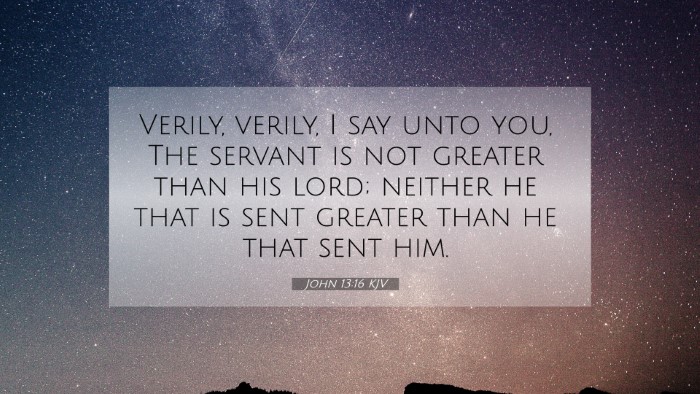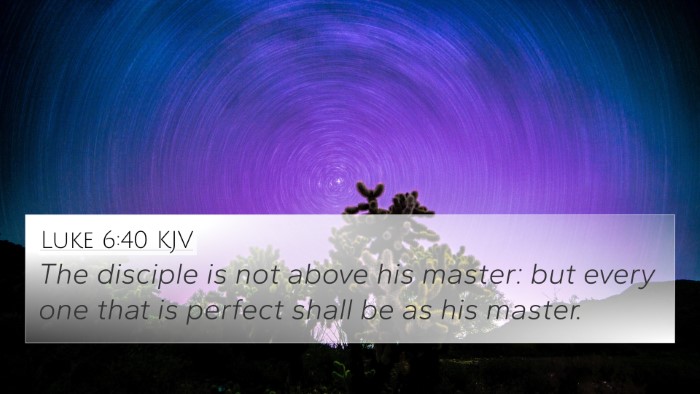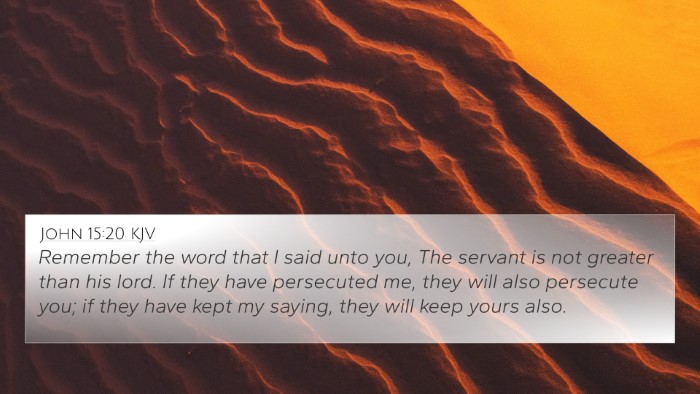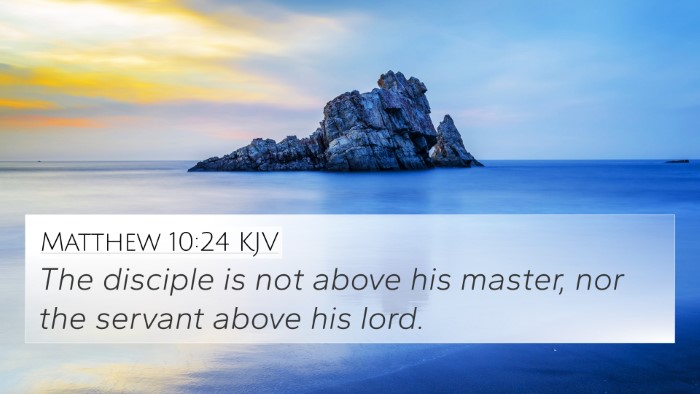Understanding John 13:16
John 13:16 states, "Verily, verily, I say unto you, The servant is not greater than his lord; neither he that is sent greater than he that sent him."
Summary of Meaning
This verse emphasizes the principle of humility and the proper attitude one should maintain in service. Jesus uses it to teach His disciples about the nature of true leadership and servanthood.
According to Matthew Henry, this passage indicates that no servant is above their master, which reminds believers that they should not think too highly of themselves or their roles. Albert Barnes elaborates that this statement serves as a caution against pride and self-exaltation, showing that Jesus, even as Lord, practiced humility.
Adam Clarke adds that Jesus was positioning Himself as both an example and a template for the disciples, leading them to understand the importance of serving others rather than seeking positions of authority for their own sake.
Bible Cross References
John 13:16 can be linked to several other scriptures that further illustrate its themes:
- Matthew 20:25-28: Jesus teaches that greatness in the kingdom of God is found in serving others.
- Mark 9:35: He who would be first must be the servant of all, echoing the same sentiment of humility.
- Luke 22:26: Jesus contrasts worldly leadership with kingdom leadership, emphasizing servanthood.
- Philippians 2:5-7: Paul teaches believers to have the same mindset as Christ, who humbled Himself.
- 1 Peter 5:3: Elders and leaders are exhorted to become examples to the flock by their humility.
- James 4:10: Humble yourselves before the Lord, and He will lift you up, highlighting the value of humility.
- John 12:26: Jesus calls His followers to serve Him, emphasizing that where He is, there His servant will be also.
- Romans 12:10-11: This passage calls believers to honor one another above themselves, aligning with the idea of servant leadership.
- Galatians 5:13: Believers are called to serve one another in love, reinforcing the theme of active service.
- Acts 20:35: It is more blessed to give than to receive, affirming the value of serving others.
Connections Between Bible Verses
Examining these cross-references reveals a consistent theme throughout both the Old and New Testament regarding the nature of servanthood:
- Thematic Bible Verse Connections: Many verses reinforce the importance of humility, emphasizing that true greatness comes from serving others.
- Inter-Biblical Dialogue: The concept of servant leadership unfolds throughout scripture, linking teachings of Jesus with the exhortations found in the epistles.
Furthermore, observing how Jesus performs acts of service for the disciples during this final supper, including the washing of their feet, illuminates His teachings.
Comparative Bible Verse Analysis
When drawing parallels between John 13:16 and other scriptures, it’s notable how each contributes to understanding the character of God as both a servant and a sovereign:
- In Matthew 11:29, Jesus invites believers to learn from His gentle and humble heart, a direct reflection of servanthood.
- Luke 12:37 talks about the blessedness of servants whom their master finds watching, offering a practical application of vigilance in service.
Tools for Bible Cross-Referencing
For those engaged in Bible study, consider using the following tools to deepen your understanding:
- Bible Concordance: A helpful resource for finding related verses.
- Bible Cross-Reference Guide: Find associated scriptures easily.
- Cross-Reference Bible Study: Methodologies to explore relationships between verses.
- Comprehensive Bible Cross-Reference Materials: Various guidebooks and online tools.
Conclusion
In summary, John 13:16 serves as a crucial teaching on humility and servanthood within the Christian faith. By understanding this verse and its numerous connections through cross-referencing Biblical texts, believers can gain a richer insight into the nature of Christ and the example He set for us. All scripture points to the profound truth that leadership in the kingdom of God is rooted in servanthood, mirrored in the actions and teachings of Jesus.







